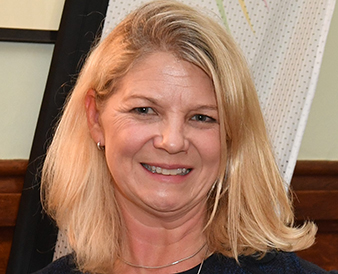New trial aims to reduce treatment side effects for women with secondary breast cancer

Researchers from the University of Southampton are investigating how body composition affects the severity of side effects from chemotherapy experienced by women with secondary breast cancer.
Secondary, or metastatic, breast cancer is when breast cancer cells spread from the first cancer in the breast to other parts of the body. Although it’s currently incurable, it’s commonly treated with chemotherapy. However, some women experience such severe side effects from chemotherapy, including nausea, vomiting, extreme fatigue, and anaemia, that they have to stop their treatment.
Breast Cancer Now has awarded £246,101 to Professor Ellen Copson and her team at the University’s Faculty of Medicine to investigate how muscle mass and body fat levels could impact the severity of these side effects.
The study will measure the body composition and grip strength of 250 women with secondary breast cancer before they start their first round of chemotherapy. Researchers will also ask the women questions about their mental and physical wellbeing.
The same measurements will be taken again after three and six months to give scientists an idea of how body composition has impacted the number and severity of the side effects these women experienced. It will also help the team understand how a patient's muscle mass and body fat levels change during treatment.
With the knowledge gained from this study, researchers hope that in future, chemotherapy doses could be tailored to a woman’s body composition to minimise side effects.

Professor Ellen Copson said: “Most chemotherapy doses are calculated using height and weight, and don’t account for body composition, such as the amount of muscle mass or body fat the person has. We know that this can impact how drugs affect people and how effective they are, but this is the first time we will study this in women with secondary breast cancer.
"We want to know how body composition impacts chemotherapy and the side effects patients experience so we can use this information to better guide treatment for women.”
Dr Simon Vincent, Breast Cancer Now’s director of research, support and influencing said: “With an estimated 61,000 people living with secondary breast cancer in the UK, research like this is crucial to ensuring that these women, who’ll be on treatment for the rest of their lives, have the best quality of life possible so they can enjoy the precious time they have left with their family and friends.”
Claire Wraight, 42, an Educational Psychologist from Reading was diagnosed with breast cancer in March 2022. She had a lumpectomy, lymph node removal and partial reconstruction. Claire says: “Two weeks after surgery I was admitted back to hospital as blood was collecting in the tissues surrounding the wound, but the recovery was fairly smooth after that.”
In the following months Claire started to experience new aches and pains but put these down to radiotherapy and the tamoxifen she was taking to reduce the risk of the breast cancer returning.
Claire says: “I had to keep going back to my GP as I knew something wasn’t right. I eventually had blood tests and CT scans which confirmed that the cancer had spread to my spine and liver and was now incurable. I barely had time to process the information and had to start chemotherapy right away.”
Claire had 13 rounds of weekly chemotherapy and was responding well despite experiencing challenging side effects. Claire says: “I had a lot of side effects, from severe skin rashes to insomnia. I also started to experience a numbness and tingling in my hands which was when my oncologist decided to withdraw this course of treatment as there were concerns over permanent nerve damage.”
Coming off a treatment that was working filled Claire with anxiety. She says: “I was left with concerns about whether an alternative treatment would be as effective. I’ve started a new type of targeted oral therapy and the side effects have been more manageable, but my white blood cell numbers have dropped so that’s being monitored.”
Claire is passionate about supporting research that is looking at reducing the severity of side effects in chemotherapy for secondary breast cancer. She says: “This new research is so important as all of us with secondary breast cancer will be on treatments for the rest of our lives. Finding out why side effects are caused, and how to reduce them, could have a huge impact on our quality of life.”
The University of Southampton is home to world-leading expertise across many areas of cancer research – from diagnosis to improving treatment and generating potential vaccines. This includes the UK’s first dedicated Centre for Cancer Immunology.